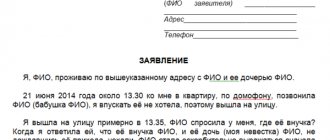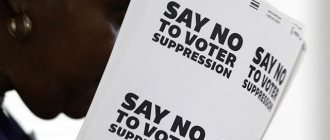ST 146 of the Criminal Code of the Russian Federation.
1. Assignment of authorship (plagiarism), if this act caused major damage to the author or other copyright holder, is punishable by a fine in the amount of up to two hundred thousand rubles or in the amount of the wages or other income of the convicted person for a period of up to eighteen months, or by compulsory labor for a term of up to four hundred eighty hours, or correctional labor for up to one year, or arrest for up to six months.
2. Illegal use of objects of copyright or related rights, as well as the acquisition, storage, transportation of counterfeit copies of works or phonograms for the purpose of sale, committed on a large scale, is punishable by a fine in the amount of up to two hundred thousand rubles or in the amount of wages or other income of the convicted person. for a period of up to eighteen months, or by compulsory labor for a term of up to four hundred eighty hours, or by correctional labor for a term of up to two years, or by forced labor for a term of up to two years, or by imprisonment for the same term.
3. The acts provided for in part two of this article, if they are committed: a) have become invalid; b) by a group of persons by prior conspiracy or an organized group; c) on an especially large scale; d) by a person using his official position - shall be punishable by forced labor for a term of up to five years, or by imprisonment for a term of up to six years, with or without a fine in the amount of up to five hundred thousand rubles or in the amount of the wages or other income of the convicted person for a period of up to three years. such.
Note : The acts provided for in this article are recognized as committed on a large scale if the cost of copies of works or phonograms or the value of the rights to use objects of copyright and related rights exceeds one hundred thousand rubles, and in an especially large amount - one million rubles.
Commentary to Art. 146 Criminal Code
1. Most of the elements of this crime are disclosed in Resolution of the Plenum of the Supreme Court of the Russian Federation dated April 26, 2007 No. 14 “On the practice of courts considering criminal cases of violation of copyright, related, inventive and patent rights, as well as illegal use of a trademark.”
2. The objective side is characterized by: a) an action in the form of misappropriation of authorship (Part 1), resulting in major damage (property (material) damage); b) illegal use of copyright or related rights, or acquisition, storage, transportation of counterfeit copies of works or phonograms (Part 2), committed on a large scale (note to the article).
Lawyer's comments
Before taking on a copyright infringement case, a lawyer does the following:
- Listens to the client.
- Asks to provide documents (licenses, publications, patent documents and others) that confirm that the disputed rights to intellectual property belong to the client.
- Checks the authenticity of documents.
- If the documents are in order and the rights are violated, a contract for the provision of services is drawn up.
The above steps are a standard procedure when starting to work as a lawyer. Without the required data, the lawyer will not build a defense tactic and will not win the case. The lawyer is obliged to foresee possible options for the court's decision and strictly follow the letter of the law. Correct interpretation of the law and judicial precedents will help you find the right tactics for defense. It is better to choose a lawyer who has experience in such cases.
A lawyer does not have the right to go beyond his authority, insult the client and humiliate his feelings, even if he is not on the client’s side. If this happens after the conclusion of the contract and payment for the lawyer’s services, the client has the right to refuse a lawyer by contacting the bar association.
The client’s task is to provide the consultant with the required documents in order to be right in court and obtain the minimum punishment in the form of compensation. Otherwise, for an especially large-scale offense, the court will imprison you for two years.
Second commentary to Art. 146 of the Criminal Code of the Russian Federation
1. The object of the crime is social relations, interests related to the implementation of the constitutional provision on the protection of intellectual property (Article 44 of the Constitution of the Russian Federation).
Part 1 art. 146 of the Criminal Code provides for liability for misappropriation of authorship (plagiarism), if this act caused major damage to the author or other copyright holder.
Copyright regulates relations arising in connection with the creation and use of works of science, literature and art. Related (copyright) rights regulate relations arising in connection with the creation and use of phonograms, performances, productions, and broadcasts of broadcasting or cable broadcasting organizations. Author is an individual whose creative work created a work.
The main regulatory act regulating the content of copyright and related rights is part four of the Civil Code of the Russian Federation.
The objects of copyright are: works of science, literature and art that are the result of creative activity, regardless of the purpose and merit of the work, as well as the method of its expression. The following are not objects of copyright: official documents (laws, judicial documents), as well as their official translations; state symbols and signs (flags, coats of arms, orders, banknotes and other symbols and signs); works of folk art, reports of events and facts of an informational nature.
2. The objective side of the crime is characterized by:
1) action (attribution of authorship);
2) consequence (causing major damage to the author or other copyright holder);
3) the causal relationship between the specified action and consequence.
3. Assignment of copyright may consist of releasing someone else’s work under one’s own name (plagiarism), using works of other authors in one’s own works without citing them, releasing a work created jointly with other authors without indicating co-authors, etc.
Criminal liability under Part 1 of Art. 146 of the Criminal Code of the Russian Federation occurs only if the violation of copyright and related rights caused major damage (otherwise we can only talk about civil liability).
4. The subject of the crime is a person who has reached the age of 16 years.
5. The subjective side is characterized by direct intent.
6. Part 2 art. 146 of the Criminal Code provides for liability for the illegal use of objects of copyright or related rights, as well as the acquisition, storage, transportation of counterfeit copies of works or phonograms for sales purposes, committed on a large scale (its concept is disclosed in the note to this article of the Criminal Code). Illegal use of copyrighted objects includes their use without the consent of the author (for example, publication, reproduction and distribution of a work; making any changes to both the work itself and its title).
7. The circulation of counterfeit goods means the unauthorized use (counterfeiting) of trademarks known on the market, which misleads buyers and infringes on the interests of the trademark owner.
Provocation of a bribe as a possible position of the defense in criminal cases of taking a bribe
One of the possible options for the position of the defense in cases of receiving a bribe, provided for by the provisions of Art. 290 of the Criminal Code of the Russian Federation, is for a lawyer to prove the fact of provocation of a bribe against his client by the briber.
It is necessary to cancel what in Art. 304 of the Criminal Code of the Russian Federation enshrines a rather narrow definition of the concept of “provocation of a bribe”, which is understood as “an attempt to transfer to an official, a foreign official, an official of a public international organization without his consent money, securities, other property or to provide him with services of a property nature, the provision of other property rights for the purpose of artificially creating evidence of a crime or blackmail.”
However, for a long time, Russian courts did not know how to correctly evaluate the defense’s arguments about the facts of provocation of a bribe. There are no clear criteria in the law by which it would be possible to assert beyond any reasonable doubt whether there was a fact of inciting a bribe or a fact of receiving a bribe, or whether law enforcement officers exceeded their powers when carrying out operational investigative measures in cases of corruption. and thus allowed the provocation of a bribe.
The situation changed dramatically with the adoption of Resolution of the Plenum of the Supreme Court of the Russian Federation dated July 9, 2013 No. 24 (as amended on December 3, 2013), which clearly formulated the following recommendations for lower courts on assessing the parties’ arguments about the presence or absence of facts of provocation of a bribe (clauses 32-34 Resolutions of the Plenum):
A) criminal liability under Art. 304 of the Criminal Code of the Russian Federation occurs under the following conditions:
- an attempt to transfer money, securities, other property or provide services of a property nature was carried out by artificially creating evidence of a crime or blackmail;
- the official, knowingly for the guilty party, did not perform actions indicating his consent to accept the bribe, or refused to accept the bribe;
B) provocation of a bribe is a completed crime from the moment of transfer of property or provision of services of a property nature:
- without the knowledge of the official;
- despite his refusal to accept illegal remuneration;
C) excludes the qualification of the act under Art. 304 of the Criminal Code of the Russian Federation, the fact of a person’s consent to accept illegal remuneration as a bribe;
D) an official to whom an attempt is made to transfer illegal remuneration is not subject to criminal liability under Art. 304 of the Criminal Code of the Russian Federation in connection with the absence of a crime (clause 1, part 1, article 24 of the Criminal Procedure Code of the Russian Federation);
D) must be distinguished from the crime provided for in Art. 304 of the Criminal Code of the Russian Federation, inflammatory actions of law enforcement officers who provoked an official to accept a bribe;
Since the Supreme Court of the Russian Federation gave the above clarifications, a fairly extensive judicial practice has formed, where the courts have rather ambiguously assessed the defense’s arguments about the absence of an event or corpus delicti under the provisions of Art. 290 of the Criminal Code of the Russian Federation and the presence of facts of provocation of a bribe:
- For example, in paragraph 3 of the Generalization of the practice of considering criminal cases of corruption for the 2nd half of 2013 and 2014 in the courts of the Yamalo-Nenets Autonomous District (approved by the presidium of the court of the Yamalo-Nenets Autonomous District on September 9, 2015) the subject’s court accepted the position of the defense and indicates that “By the verdict of the Nadym City Court, L. was found guilty under Part 1 of Art. 292 (2 crimes), part 3 of Art. 290 (2 crimes), part 3 of Art. 30 and part 3 of Art. 290 of the Criminal Code of the Russian Federation. The court found that L., holding the position of doctor at a district hospital, acting through an intermediary S., received bribes from three persons for drawing up false certificates of incapacity for work. In the latter case, he was detained by operational officers. The court of appeal overturned the verdict against L., the latter was acquitted due to the lack of corpus delicti in his actions,” since “the materials of the criminal case did not contain evidence that the convicted person would have committed the crime without the intervention of law enforcement officers and without the artificial creation of conditions for this by them . The panel of judges came to the conclusion that the actions of the police officers were aimed at inducing L. to receive illegal remuneration, that is, at provocation, which violated the requirements of Art. 5 of the Federal Law “On Operational-Investigative Activities”.
The results of the operational investigation and evidence derived from them could not be used as the basis for the verdict. Taking into account that other evidence was also declared inadmissible, the judicial panel came to the conclusion that L.’s guilt had not been proven and decided to acquit him.”
- However, for example, already in the Resolution of the Presidium of the Tver Regional Court, the court rejects the position of the defense and says that “the arguments of the cassation appeal about obtaining the results of operational search activities in violation of the law, including in connection with the presence of the convicted V. and K. special status, as well as the provocative actions of police officers during operational search activities, received a full and correct assessment by the court of first instance and the court of appeal, with which there is no reason to disagree. In particular, the court of first instance, based on checking the results of operational investigative activities in the criminal procedure, came to the conclusion that D.’s intent to extort a bribe was formed independently of the activities of the employees of the operational units. The appellate court correctly pointed out that the Federal Law “On Operational-Investigative Activities” and other federal laws do not provide for obtaining any special permission to conduct an operational experiment in relation to a municipal deputy.”
Thus, in the practical activities of a defense lawyer in cases of bribe-taking, it often becomes necessary to base his position on the position of the client regarding the fact of provocation of a bribe by the bribe-giver or law enforcement agencies. Judicial practice on this issue is currently very ambiguous. The defense's arguments about the fact of provocation of a bribe are carefully checked by the courts, taking into account the recommendations set out in Resolution of the Plenum of the Armed Forces of the Russian Federation dated July 9, 2013 No. 24 (as amended on December 3, 2013).
Sometimes the courts accept this position, and sometimes they claim that the defense was unable to prove the fact of provocation of a bribe, and also that no significant violations or abuses were committed during the operational investigation. Along with the arguments about the facts of provocation of a bribe, others should be used in order to strengthen the defense’s position and increase the client’s chances of an acquittal.



